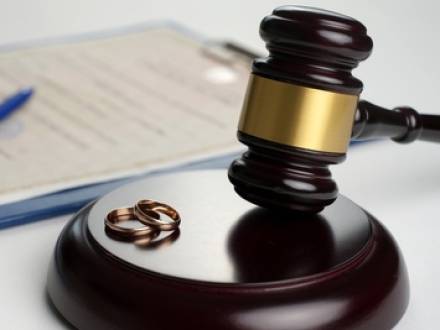What Evidence Gets Used in Divorce Court?
 Most divorces in Illinois do not reach the Courtroom. Instead, they are settled through negotiation or mediation. When a divorce does go to trial, the Court relies on strong evidence to make decisions. An understanding of the kind of evidence that could be used in divorce litigation is important for anticipating what you will need to do to get ready if you think your divorce is heading to trial.
Most divorces in Illinois do not reach the Courtroom. Instead, they are settled through negotiation or mediation. When a divorce does go to trial, the Court relies on strong evidence to make decisions. An understanding of the kind of evidence that could be used in divorce litigation is important for anticipating what you will need to do to get ready if you think your divorce is heading to trial.
An experienced Illinois divorce attorney with The Law Office of Nicholas W. Richardson, P.C. can help you understand what evidence may be used in your specific case, negotiate for you outside of Court, and, if you do go to Court, ensure your rights are protected.
The Role of Discovery in Divorce Cases
Before a divorce case goes to trial, both spouses go through a stage called discovery. Discovery is the formal process of exchanging information and evidence. Discovery allows each side to gather important details about finances, property, and other key issues. The main types of discovery methods include:
-
Interrogatories – Written questions that a spouse must answer under oath
-
Requests for production – A request for documents such as bank statements, tax returns, and emails
-
Depositions – Sworn testimony given outside of Court, where attorneys ask a spouse or witness questions
-
Subpoenas – Court orders requiring someone to provide documents or testify
Discovery helps ensure that both spouses have a fair chance to present their case. It also prevents one side from hiding important information because there are serious penalties for lying under oath.
What Kind of Evidence Do I Need for Divorce Court?
If a divorce goes to trial, the Court may consider different types of evidence to make fair decisions. The most common types include:
-
Financial records – Tax returns, bank and investment account statements, and pay stubs
-
Property records – Deeds, mortgage statements, and appraisals
-
Communications – Emails, text messages, and social media posts
-
Witness testimony – Statements from friends, family members, or experts
-
Children’s records – Grades, medical records, behavioral reports, and psychological analyses
What Happens if You Hide Evidence in a Divorce Case?
Some spouses try to keep certain records, money, or other evidence hidden. This is always a bad idea and can end up backfiring. Judges can issue subpoenas to force banks, employers, phone companies, and other third parties to turn over documents. For example, if someone claims they have a very low account balance with recent transfers, a bank can be forced to turn over all accounts under a person’s name, revealing hidden accounts the other spouse may not know about. Even deleted text messages or social media posts can sometimes be recovered and used in court.
If the Court discovers that someone has intentionally hidden evidence in a divorce, that person may face serious consequences, including fines, loss of credibility, and even a lower share of marital assets. Even if you are worried about the outcome of your divorce, your best bet is to be honest and fully disclose any requested evidence.
How Attorneys Cross-Examine Evidence in Court
If a divorce case goes to trial, attorneys will present and challenge each other’s evidence through cross-examination. This is when an attorney questions the other spouse or witnesses to test the accuracy and reliability of their testimony.
For example, if someone claims he or she cannot afford child support but that same person’s bank account shows large cash deposits, all of the financial records may be brought in as evidence and the other spouse’s attorney can begin a line of questioning focused on those inconsistencies.
Contact a Palatine, IL Divorce Lawyer
Gathering and presenting evidence in a divorce case can be complicated, but our experienced Arlington Heights, IL divorce trial lawyer can help protect your interests. If you are facing divorce, call The Law Office of Nicholas W. Richardson, P.C. at 847.873.6741 for a free consultation to discuss your case and learn more about your legal options.
Introducing The Law Office of Nicholas W. Richardson
Nicholas W. Richardson is an experienced divorce lawyer and mediator whose comprehensive legal knowledge, commitment to clients and reputation for results bring lasting solutions to your problems.






